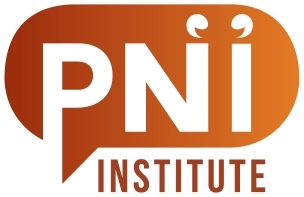(Note: This post was written by Daryl Cook, who recently joined the PNI Institute as an Associate Member.)
Ron felt the ‘whack’ of the baton as it swung up into his hand from the first blogger, Cynthia. He closed his hand around the baton, and sprinted off like mad toward the third blogger (me) who was waiting for him at the 200 metre mark.
It’s my turn to receive the baton and to introduce myself. I’ll follow the lead and recount my own history with Participatory Narrative Inquiry (PNI) and my hopes for the future.
During my early career, I developed and implemented new technologies. Like all good things, that came to an end. I recall a moment of clarity, that became the catalyst for me to change tact and pursue a different career …
It was in Canberra, Australia’s National Capital. I was there to host the technology stream of a user group conference, and to
deliver several presentations. Participants were going to sit through three long days of PowerPoint presentations. I dreaded the thought of this, and decided I wanted to try something different to make it more interesting and engaging.
I facilitated a session based on Edward De Bono’s ‘Six Thinking Hats’ technique. I’d never done this before, and I was quite apprehensive about doing something out of the ordinary. But, my instincts were correct. The workshop was well received. Many participants thanked me for doing something different and unexpected.
This whet my appetite. It started my quest to help other people discover more creative, human, ways of engaging and working together.
It lead me to work with Shawn Callahan at Anecdote. Shawn (who many of you may know, or know of), worked with Cynthia and Dave Snowden at IBM in the special interest group on narrative. He went on to continue his own work in this area when he left.
I look back on this time as a mid-career apprenticeship. I was Shawn’s protégé, and learned the tricks of the trade by working on client projects and helping others learn to use stories. I also took a year-long facilitation course. I developed an understanding of working with different types of groups as well as welcoming the challenges.
Since then, I’ve been running my own consulting practice, and have worked a few short-term jobs between. This included another stint
with Anecdote, albeit with a different focus on organisational storytelling. I continue to explore how people create and convey meaning through stories and conversations. I believe both to be fundamental to people connecting and working together.
So what about my hopes for the future?
From a personal perspective, the first one is easy: I hope to work on more PNI projects.
I’m also interested to learn more about the approach other practitioners take. Most of what I’ve learned has been from one
or two others, who have their own perspectives, assumptions and methods. Like Cynthia, I’m interested in exploring the
connections between PNI and other approaches. I’d also like to understand the connections between different narrative-based
approaches that have emerged. I hope this will inform and improve my own (and others) practice.
It may come as no surprise to you that, as a consultant, I always favour a facilitative and participatory approach. I prefer to work
where there is broad engagement of those people who have a stake in what’s happening. I also prefer to work in ways that empower
people to solve their own problems. That is also the hope I hold for the PNI Institute; that it becomes a way for people to take part and
connect with each other. A place to make sense of our experiences, share knowledge, and experiment so we can do our work better.
Is there someone waiting at the 300 metre mark to collect the baton from me?


@Harold Bâton means stick: ‘stok’ or ‘stokje’ in Dutch. Receiving the bâton is kind of like the Dutch phrase ‘het stokje doorgeven’, and here it means means that it is your turn to speak, and that others will give you time and attention while you do so. Wikipedia article about the talking stick (bit short unfortunately): https://en.wikipedia.org/wiki/Talking_stick
Qua the bâton as a directors instrument: some 3-4 centuries ago directors pounded a staff (bâton) on the floor to keep the orchestra in sinc. Lully – director and composer, famous for how he changed opera – hit his own foot so hard that it became infected. He died from it. One-two-three-four-aaaaargh.
The best directors step back. 🙂 http://www.ted.com/talks/itay_talgam_lead_like_the_great_conductors
Quite the story of shared sustenance. I look forward to participating in the story of co-consumption in aid of future momentum.
Hi William, welcome at PNI2.org. It’s indeed a bit quiet here lately. Personally I’ve been occupied relaunching our new StoryConnect brand. See http://www.storyconnect.nl or go to http://www.storyconnect.eu or http://www.storyconnect.ca to get to the english versions.
I’m curious to find out what discussions you would like to sustain here. Maybe we can kick them of together.
Have a nice day.
Harold
I love being part of an international group that can spend hours discussing the meaning behind a single word.
I did originally mean the baton from a relay race baton but I also like the wikipedia definition “Baton: a smaller version of a baguette”. Perhaps we are passing round our first sandwich to sustain us through our participative adventures ahead.
Welcome on board Daryl, I look forward to sharing thoughts and insights in the coming weeks.
Thanks Harold. I was referring to being passed the baton, as in a relay. I could have extended the analogy further, but decided against it … I like to think there are some similarities. As individuals who could all run a very good race and get good times, however running a relay requires lots of practice together! I also like the music analogy and your idea of a ‘self-organising orchestra’.
Being the Dutchie here, I had to look up what a baton is. There are at least 4 definitions. A musical instrument, the sports variety, a piece of fabric that comes with a medal and the conductor’s main tool. Maybe there are more. Its clear that Ron used the sport metaphor and I’m certainly not claiming to be a conductor here :-). So the Q is: what definition did you and the other have in mind?
Personally, with hindsight, I think the musical one appeals to me most. I see PNI2 as an orchestry w/o a conductor, or a set of bands communicating about music instead of playing (that’s what we do anyway locally).
Curious to hear your interpretations/intentions.
Thanks Cynthia! I’d be no good in a relay … I completely ran past the others without seeing them!
Great post, Daryl. I’m looking forward to collaborating with you here. Let’s start something 🙂
For the curious, the “baton” of introduction has also passed through the hands of Aiden Choles, Harold van Garderen, and Marco Koning.